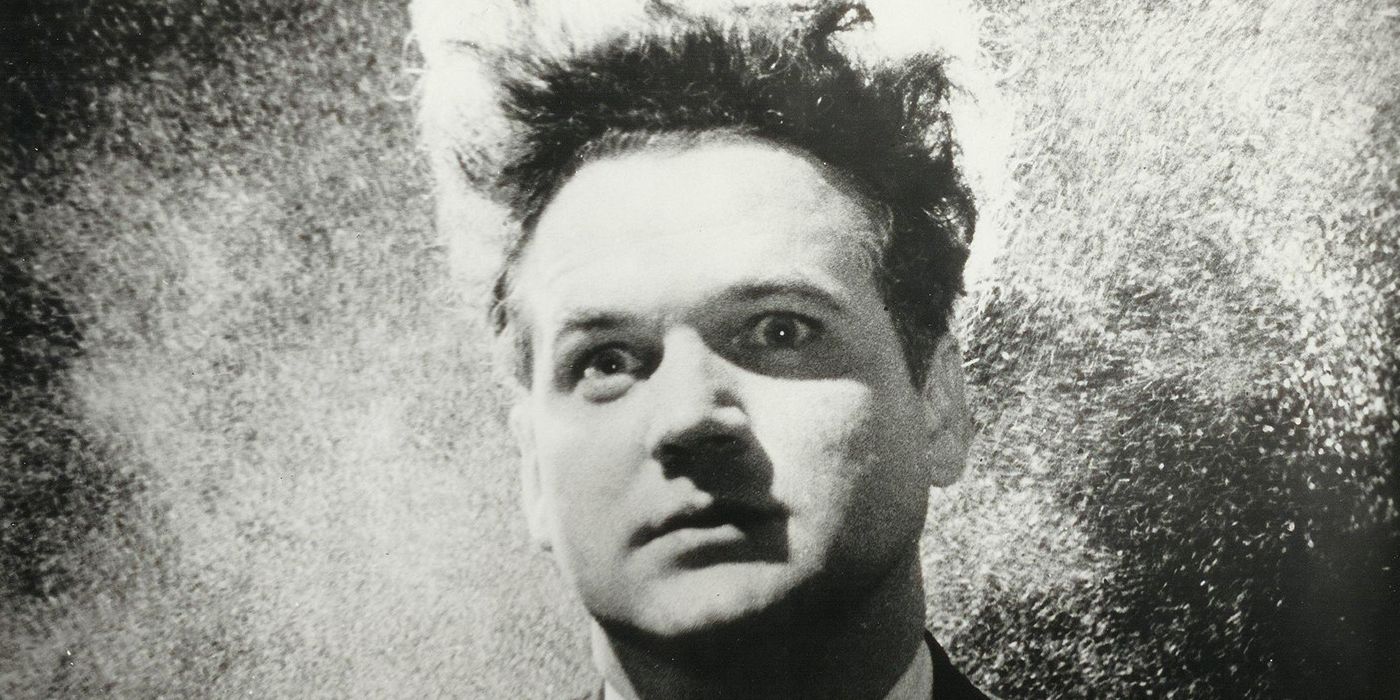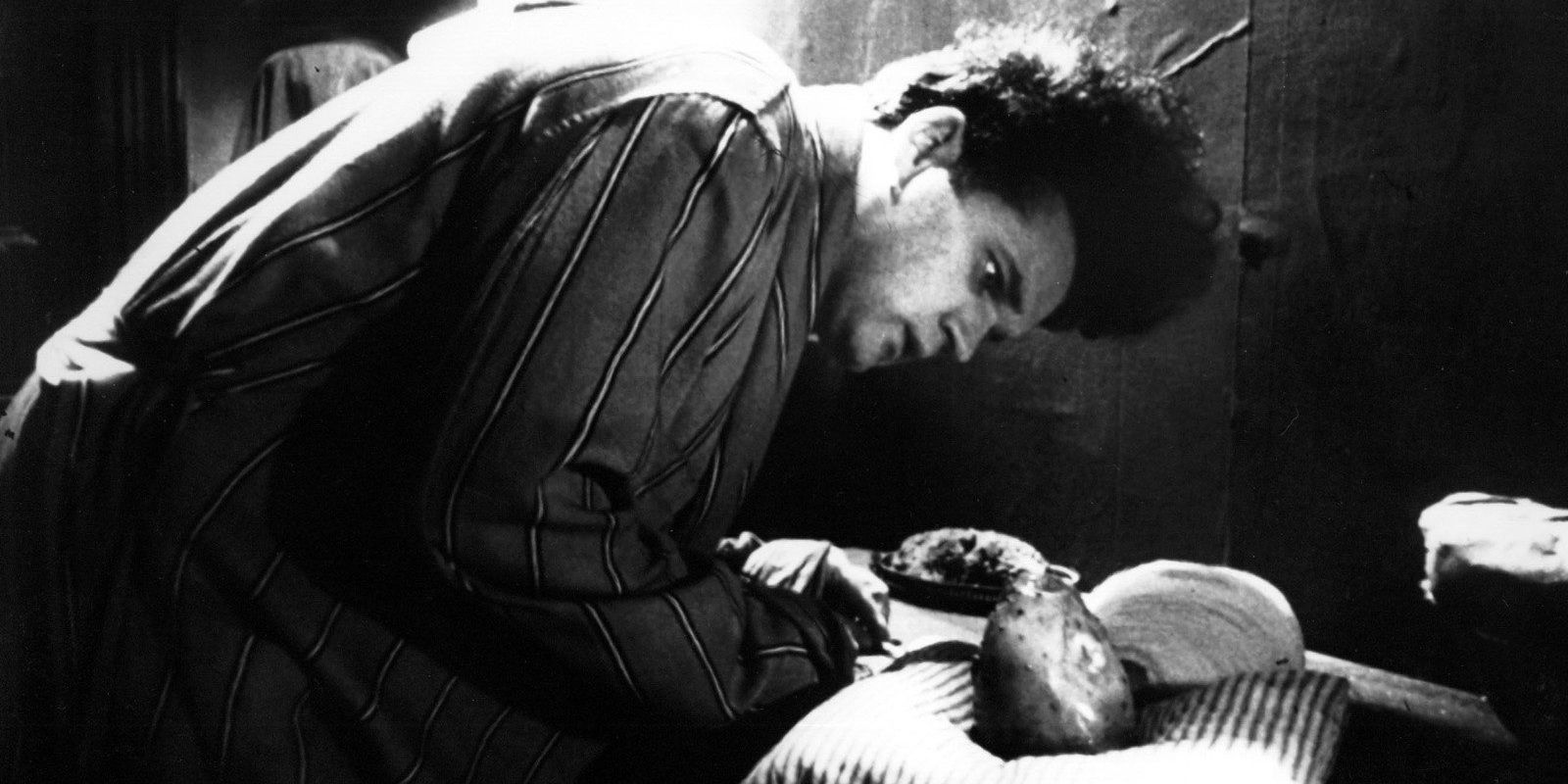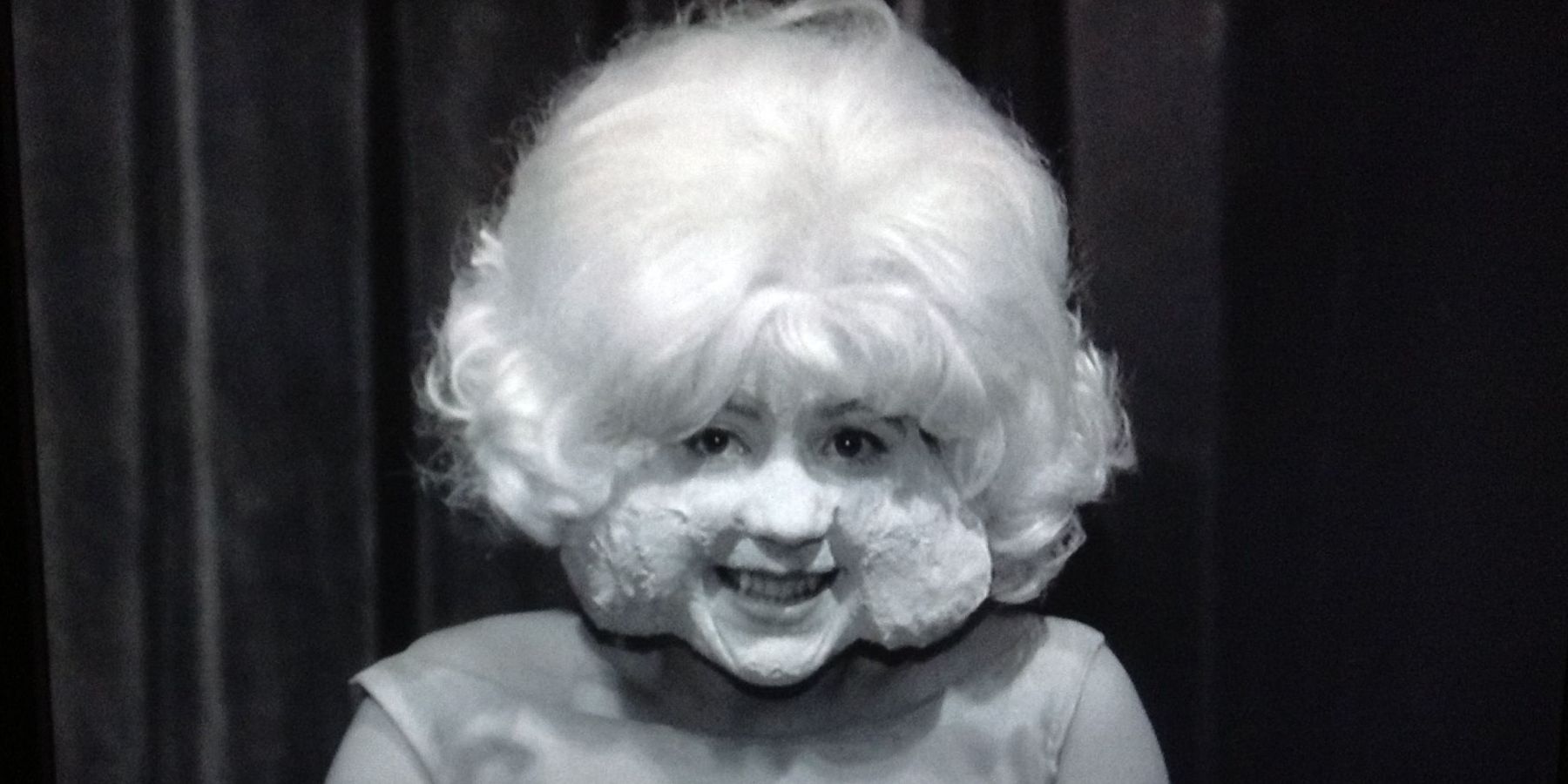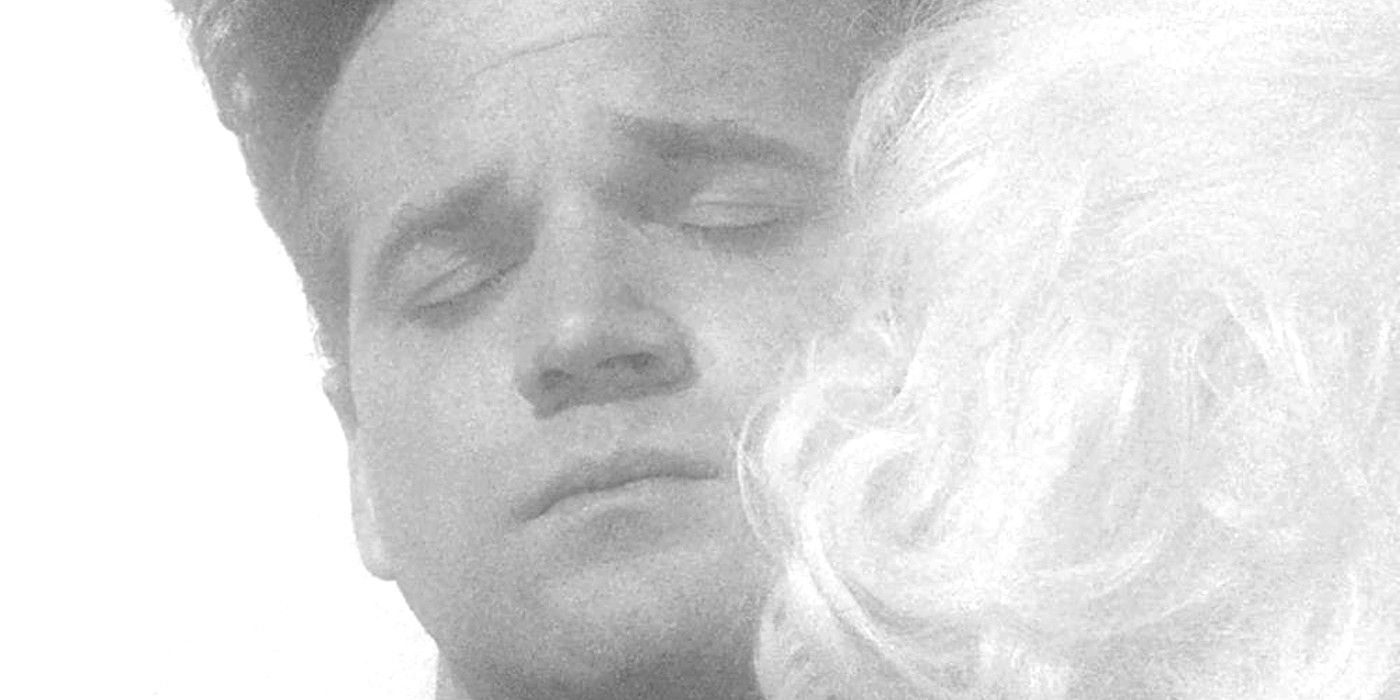David Lynch's surreal debut Eraserhead has been described as a nightmare come to life — here's the shocking film's true meaning. Filled with surreal imagery, strange disturbances, and creepy symbolism, Lynch's movie is difficult to understand and is open to interpretation; however, Eraserhead's true meaning is connected to director David Lynch's life.
When Eraserhead premiered at the Filmex festival in Los Angeles in 1977, audiences were shocked. David Lynch was a complete unknown who had spent the previous five years making the movie with almost no budget at all. It was an entirely new experience for audiences, and its influence and popularity spread. The artist went on to craft famous, (and, to many film fans, inspiring) projects through both writing and directing over the years. David Lynch co-created Twin Peaks, and made movies like Mulholland Drive and the original, 1984 version of Dune. When asked about Eraserhead, David Lynch says only that it is "a dream of dark and troubling things."
Eraserhead follows Henry Spencer (Jack Nance, who would later star in Twin Peaks), a new father who is left to care for his deformed baby in an industrial wasteland. Wrapped in bandages, the baby won't eat and cries incessantly. Soon, the baby has trouble breathing and develops painful-looking sores. To escape his torment, Henry has visions: one where he is decapitated, a boy finds his head in the street, and brings it to a factory to be made into erasers; another is Erasherhead's meaningful "Lady in the Radiator," who sings, "In Heaven, everything is fine," while stomping on ugly, sperm-like creatures.
How Eraserhead Portrays The Fear Of Fatherhood
Despite constant ambiguity within it, a key part of Eraserhead's meaning relates to the fear of fatherhood. It depicts the anxiety of becoming a parent and taking on the responsibilities involved. It's not a passive fear either, but rather a full-blown terror about the entire process from start to finish. After the baby comes into his life, Henry's world becomes a rolling nightmare. At dinner with the in-laws, he is horrified at the prospect of becoming like them, a part of the downward spiral of family life, his fear depicted by the oozing mini-chickens being served. The sounds the baby makes in the David Lynch film are cringe-worthy as it mewls into the night, all while the Lady in the Radiator beckons him to escape it all by stomping out the baby's life.
Interestingly, David Lynch's daughter, Jennifer, spent a lot of time on the set while Eraserhead was being made. In an interview with Vice from 2012, Jennifer Lynch says that her memories from that time "are some of the most formative of my life." She also talks about it being a happy time, despite the darkness of the David Lynch movie. Nevertheless, some have speculated on how Jennifer was as a baby, and if she is, perhaps, Eraserhead's inspiration. David Lynch has never confirmed this theory, and Jennifer even filmed a scene for the movie in which she dug dimes out of the ground that didn't make the final cut.
Whatever the case may be, Eraserhead is filled with symbolism, strangeness, and is open to analysis. Lynch himself has stated that no one has come up with his interpretation of Eraserhead's meaning, so it's possible the explanation above is failing to see the whole picture.
Eraserhead's True Meaning
Though many viewers have an artistic sort of connection to David Lynch's Eraserhead, they still find that watching it is a confusing and disturbing experience. Audiences are often repulsed by the film's conclusion, in which Henry kills the baby. However, David Lynch's films are highly psychological, filled with abstract symbols and codes. In his description quoted early in this article, Lynch describes Eraserhead as a "dream," which may mean that the events in the film take place entirely within Henry's mind. This would certainly explain its surrealness.
Also, in addition to saying that no one's guessed his exact interpretation of Eraserhead, Lynch said in an interview that some of his inspiration for the film came to him when he read a specific line from the Bible — though he didn't specify which passage he was referring to. In this interview, he also says regarding the importance of a viewer coming to their own conclusion about a film's meaning, "You [...] know for yourself, and what you know is valid." With Eraserhead and David Lynch's open-ended spirit in mind, here's a rundown behind some more interpretations of the ending's meaning in this 1977 cult classic.
What Eraserhead's Ending Means
The ending to this David Lynch movie is as surreal and symbolic as everything that comes before it. Eventually, Henry removes the baby's bandages and finds that the baby doesn't have skin. Its internal organs spill out, and — frustrated and horrified — he cuts its organs with the scissors. A series of disturbing images follow, ending in a warm embrace from Erasherhead's Lady in the Radiator. As mentioned in the film's previous reading, it's possible to see the baby as a representation of Henry's fear of fatherhood. Based on Lynch's work and style, this sort of interpretation is likely — and it's also much less disturbing than taking Eraserhead's events in a more literal way.
Through this kind of figurative lens, when Henry kills the baby, he's not literally doing so, but killing his fear. He then embraces the Lady in the Radiator, who is his happiness (more specifically the kind of happiness that can be attained by a parent who finally learns to embrace the terrifying vulnerability and uncertainty of their new role). In this way, the true meaning of Eraserhead may very well be about living in a world of fear, with the David Lynch plot conveying that escape from such emotions is possible.




